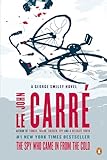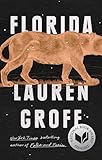These things come in threes and today they came nearly all at once. The first, when the President of Ukraine–famous for his chocolate–announced that he was putting the half of the country that borders Russia under martial law. The second with the two emails from the U.S. Embassy: the first advising me to be aware of “heightened police presence” and the second which informed me that my sons, 3 and 5, had been issued American passports. And finally there came Michael Cohen and the glimmer of hope that we might not be hearing the phrase “constitutional crisis” every damn evening on the news much longer.
I don’t know and am loath to predict how these events fit together–the war, the passports, the Cohen revelation–I just know they do. You can laugh, but that’s the way things work here: in threes. You greet an honored guest with three kisses. You receive a long absent friend into your home by offering them 1) bread, 2) salt, and 3) a lengthy formal blessing. When you go on a trip you sit on your suitcase before you leave and cross yourself three times. If you’ve ever endured a full Eastern Christian Orthodox liturgy you wouldn’t be wrong to walk away after the benediction convinced that orthodox ritual has a certain OCD quality to it. Why pray it once when you can do it three times?
With the species developing a real knack for atrocity, I turn to books not so much in search of escape but for reassurance. An irrational, and fully conscious, bid to force the world into a semblance of order, a place where things come in threes. Faith, hope, and love. Wisdom, integrity, and goodwill. Kessel to Malkin to Crosby. This phenomenon almost certainly affected my reading choices more than usual this year and I selected (or had selected for me) writers I could count on to honor that ancient Trinitarian codex: intelligence, clarity, and truth. These three, couched in beauty, can change the world. I am required to believe it.
There is more to say here but I’ll let it stew for a bit, hopeful that I will yet have opportunities to express my ideas this year here and elsewhere. And I will take my cue from the authors I name below, and not blanche in the face of the presumption, invective, ill will, bald-faced mendacity, self-righteousness, lazy orthodoxy, or myopically stubborn resistance to engage that I encounter this year. I’ll write about it. I’ll take it on, that–in defiance of Keats–the ceremony of innocence not be drowned. I have no choice really. It’s snowing hard–the first real thump of winter in what is tuning up to be a very long one, morally, politically, and meteorologically, and my two little Americans are tucked up warm and safe, the five-year-old with his arm wrapped protectively around his brother. These allow me no room for cynicism.
But you came for the books. Each title I recommend here, it turns out, contains its own trinity of sorts: an absence of juvenile staginess; something of wisdom; something of love. These helped keep my hands steady as the troops amassed at the border and my brain struggled to distinguish between threats to civilization whether credible or concocted.
 A Legacy of Spies by John le Carré
A Legacy of Spies by John le Carré
I’m hopeful that the day will come that le Carré ceases to be referred to as an “author of spy novels.” It’s going on six decades that he’s been offering us an unflinching critique of our systems and ourselves, and yeah, his protagonists are often spies. But, oh, what spies. In this revisiting of the misdeeds of characters he first introduced us to in The Spy Who Came in from the Cold and Tinker, Tailor, Soldier, Spy, le Carré takes a coldblooded look at how the past refuses to stay buried. This is a masterful writer, with a keen eye for humanity at its most frail and most sinister. One proviso: to get the full enjoyment and understanding of Legacy, prepare by reading the other two novels I’ve mentioned here. Your local bookseller, not to mention your conscience, will thank you.
 Kieron Smith, Boy by James Kelman
Kieron Smith, Boy by James Kelman
If you have not yet discovered James Kelman, here are 400-ish worthy pages to allow you to take on one of Scotland’s hidden treasures. Kelman’s ability to inhabit a child’s head provides us with a remarkable opportunity to again confront the world for the first time. He writes with grit and physicality of a rare sort and his depiction of Kieron “Smiddy” Smith, ages five through 13 and growing up poor in Glasgow, is an achievement nothing short of astonishing. Kelman’s art will shatter your preconceptions of what a child narrator sounds like. Just don’t look for neat plotlines or tidy, moral-laden endings–this is the anti-Harry Potter. This is your kids.

 All That Is Left Is All That Matters by Mark Slouka
All That Is Left Is All That Matters by Mark Slouka
The author of the criminally underrated Brewster is back with a short-story set that puts his considerable gifts to the test. There’s a muscularity to Slouka’s writing that I don’t encounter often enough in contemporary fiction and it strikes me that this is a writer who’s been around. He’s a grown-up and the worldview of his characters, regardless of background, reflects that. He whittles our contemporary predicament down to its core and his characters, without pretense, are largely untouched by first-world problems or facile first-world solutions.
 Flights by Olga Tokarczuk
Flights by Olga Tokarczuk
If a strictly linear narrative structure is obligatory to your definition of what makes for a “good book,” I’d encourage you to set that requirement aside for a bit and consider this 2018 Booker Prize winner. At 116 stories filling 400 pages, structurally it will seem chaotic at first. Stick with it, though, and themes and patterns will begin to emerge of lives and loves and a rocket ship ride through the swirl of stars that is us. An added bonus: Jennifer Croft’s translation (from Polish) is a joy to read and a template for a translation master class.
 Florida by Lauren Groff
Florida by Lauren Groff
This is a problematic writer for me for a couple of reasons: first, Florida is the second of about half-a-dozen books published by Riverhead Books that I could have put on my list this year, and having to choose was not pleasant; and second, I struggle to decide whether Groff has written a set of fictional short stories or just spent years and years observing the (apparent) mess that is Florida and rendered some exceptional creative non-fiction describing life in those parts. This is high art–the conjunction of a keen intelligence, a febrile imagination, and unrelenting skill that gets you thinking so hard about your own circumstances it stings. And these sentences. I shake my head in disbelief, wondering if it’s easy for her to be this good. These stories will spawn a brood of “I don’t like any of these characters” critiques, no doubt. Usually a pretty good sign that a writer has knocked it out of the park. Outstanding.
 Come West and See by Maxim Loskutoff
Come West and See by Maxim Loskutoff
How many stories have you read this year about an isolated fur trapper who falls in lust with a grizzly? None? Then what have you been reading? I’m a son of the American northwest and have always found grizz to be wet-my-pants terrifying, but Maxim Loskutoff has got me wondering if they might be an acceptable alternative to the company of some people. Come West and See, his short story debut, is filled with the careworn who spend their lives in the rugged territories in America’s northwest corner and–here’s the true part–they’ve got some unique ideas about their role inside these United States. Towering boreal forests and isolated settlements and a people and locale largely ignored fill these pages, and if you’re wondering how life in America could possibly engender the current level of disaffection that we’re seeing in society, well, here’s a dozen tales of how that works. Loskutoff’s writing puts flesh on the free-floating anxieties of those relegated to spend their days alone with their pain, and plugs them into a territory as pristine as it is insuperable. A territory that features the kind of overwhelming immensity of the natural world that would be impossible in an urban setting. Certainly the most “political” book on my list and therein lies the irony: these stories are about what happens when humanity becomes so degraded that all it has left to hold onto, all it has by which to define itself, is its politics.
More from A Year in Reading 2018
Do you love Year in Reading and the amazing books and arts content that The Millions produces year round? We are asking readers for support to ensure that The Millions can stay vibrant for years to come. Please click here to learn about several simple ways you can support The Millions now.
Don’t miss: A Year in Reading 2017, 2016, 2015, 2014, 2013, 2012, 2011, 2010, 2009, 2008, 2007, 2006, 2005
The post A Year in Reading: Il’ja Rakos appeared first on The Millions.
Source : A Year in Reading: Il’ja Rakos














